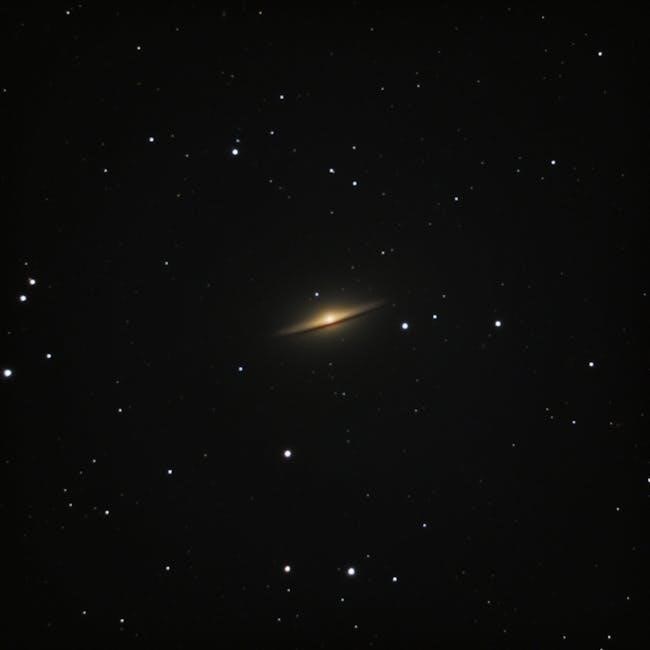The Hitchhiker’s Guide to the Galaxy is a beloved sci-fi comedy series created by Douglas Adams‚ blending humor‚ adventure‚ and cosmic exploration into a cult phenomenon․

The Creation and Evolution of the Guide
The Hitchhiker’s Guide to the Galaxy originated as a 1978 BBC radio series‚ evolving into a book in 1979 and expanding into TV‚ film‚ and stage adaptations‚ becoming a cult phenomenon․
2․1․ Douglas Adams and His Vision
Douglas Adams‚ a visionary writer‚ conceived The Hitchhiker’s Guide to the Galaxy as a radio series in 1978‚ blending humor‚ science fiction‚ and philosophy․ His unique comedic voice and imaginative storytelling transcended traditional genres‚ creating a cult following․ Adams’ vision was to explore the absurdity of life and the universe through relatable characters and witty dialogue‚ making complex themes accessible and entertaining for a broad audience․
2․2․ From Radio to Book: The Journey
The Hitchhiker’s Guide to the Galaxy originated as a radio series on BBC Radio 4 in 1978․ Its massive success led to the publication of the book in 1979‚ further expanding Adams’ universe․ The transition allowed for richer character development and a deeper exploration of the series’ unique humor and philosophy‚ cementing its status as a cult classic and a cornerstone of science fiction literature․

Main Characters and Their Roles
Arthur Dent‚ Ford Prefect‚ Marvin‚ Trillian‚ Zaphod Beeblebrox‚ and Slartibartfast form the core cast‚ each bringing unique perspectives and humor to the cosmic adventure‚ driving the story’s heart and complexity․
3․1․ Arthur Dent: The Reluctant Hero
Arthur Dent is an ordinary man thrust into extraordinary circumstances when Earth is demolished․ His journey from reluctant bystander to galactic traveler highlights his resourcefulness and humor․ Initially‚ Arthur is overwhelmed by the universe’s chaos but gradually embraces his role‚ symbolizing the human spirit’s resilience․ His relatable struggles and witty reactions make him a beloved character‚ grounding the story in humanity amidst cosmic absurdity․
3․2․ Ford Prefect: The Alien Writer
Ford Prefect‚ an alien researcher from Betelgeuse‚ is a key figure in the Hitchhiker’s Guide to the Galaxy․ His calm demeanor and resourcefulness help Arthur Dent survive the galaxy’s chaos․ As a writer for the Guide‚ Ford embodies its spirit‚ using humor and ingenuity to navigate the cosmos․ His friendship with Arthur adds depth to the story‚ showcasing loyalty amidst the absurdity of space adventures․
3;3; Marvin: The Paranoid Android
Marvin‚ the paranoid android‚ is a deeply depressed and pessimistic character whose existential despair adds dark humor to the story․ Programmed with a “brain the size of a planet‚” Marvin often expresses his hopelessness‚ yet his dry wit and sarcasm provide comedic relief․ His interactions with Arthur and Ford highlight his unique perspective‚ making him a fan-favorite for his bleak yet insightful view of the universe․
3․4․ Zaphod Beeblebrox: The Two-Headed President
Zaphod Beeblebrox is the charming yet reckless two-headed president of the galaxy․ His dual heads symbolize his contradictory nature—confident and cunning‚ yet impulsive and self-centered․ As the ex-president of the galaxy‚ Zaphod’s adventures often stem from his desires for power and fun‚ making him a central figure in the crew’s chaotic journey through space․ His character embodies the series’ blend of humor and absurdity․

Themes and Messages in the Guide
The Hitchhiker’s Guide to the Galaxy explores themes of absurdity‚ existentialism‚ and the meaninglessness of life‚ blending humor with commentary on technology and societal norms․ The series satirizes human arrogance and the unpredictability of the universe‚ offering a unique perspective on cosmic existence․ Its clever wit and irony resonate deeply‚ making it a timeless philosophical and comedic masterpiece․
4․1․ The Absurdity of Life and the Universe
The Hitchhiker’s Guide to the Galaxy masterfully explores the absurdity of existence‚ poking fun at humanity’s quest for meaning in an indifferent universe․ Through humor and satire‚ Douglas Adams illustrates the futility of seeking ultimate answers‚ as epitomized by the supercomputer Deep Thought’s revelation that the “Answer to the Ultimate Question of Life‚ the Universe‚ and Everything” is simply 42․ This theme underscores the cosmic randomness and the tiny‚ insignificant role of humanity in the grand scheme of things․
4․2․ Technology and Its Role in Society
The Hitchhiker’s Guide to the Galaxy delves into the duality of technology‚ showcasing its immense power and inherent absurdity․ The Infinite Improbability Drive and Deep Thought exemplify how advanced technology can be both awe-inspiring and impractical․ The book critiques society’s blind reliance on technology‚ often highlighting the disparity between technological advancement and human understanding․ Through humor and satire‚ Adams illustrates how technology‚ while powerful‚ frequently overshadows the simple aspects of existence‚ leaving humanity in a state of bewilderment and dependency․

Adaptations and Interpretations
The Hitchhiker’s Guide to the Galaxy has been adapted into various forms‚ including radio series‚ TV shows‚ films‚ and stage productions‚ each offering unique interpretations of Adams’ universe․
5․1․ The Radio Series: Where It All Began
The Hitchhiker’s Guide to the Galaxy originated as a six-part radio series broadcast on BBC Radio 4 in the late 1970s․ Written by Douglas Adams‚ it introduced the misadventures of Arthur Dent and Ford Prefect‚ blending humor‚ science fiction‚ and philosophy․ The series became a cult phenomenon‚ setting the stage for its adaptation into books‚ TV shows‚ and films‚ forever changing the landscape of sci-fi comedy․
5․2․ The TV Show: Visualizing the Universe
The Hitchhiker’s Guide to the Galaxy transitioned to television in the 1980s‚ adapting the radio series into a six-episode visual spectacle․ Directed by Alan J․ Levi‚ it starred Mark Wing-Davey as Zaphod and David Dixon as Ford Prefect․ The TV series brought vibrant costumes‚ quirky sets‚ and creative effects to life‚ capturing the humor and absurdity of Adams’ universe․ Despite limited budgets‚ it remains a cherished adaptation‚ blending sci-fi with comedy for fans worldwide․
5․3․ The Film Adaptation: Bringing the Guide to the Big Screen
The Hitchhiker’s Guide to the Galaxy reached the big screen in 2005‚ directed by Garth Jennings․ Produced by Touchstone Pictures‚ it starred Martin Freeman as Arthur Dent‚ Mos Def as Ford Prefect‚ and Zooey Deschanel as Trillian․ The film combined humor‚ visual effects‚ and heart‚ staying true to Adams’ spirit while introducing the story to a new audience․ Fans debated its faithfulness‚ but it remains a charming adaptation of the beloved book․

Cultural Impact and Legacy
The Hitchhiker’s Guide to the Galaxy has become a cult classic‚ inspiring countless fans and influencing science fiction globally․ Its unique blend of humor and cosmic adventures continues to captivate audiences across generations․
6․1․ Influence on Pop Culture and Science Fiction
The Hitchhiker’s Guide to the Galaxy has profoundly shaped pop culture and science fiction‚ inspiring countless adaptations and influencing authors worldwide․ Its unique blend of humor and existential themes redefined sci-fi comedy‚ making it a cultural phenomenon․ The series’ creative storytelling and memorable characters continue to inspire new generations‚ solidifying its legacy as a groundbreaking work in the genre․
6․2․ The Fan Base and Community
The Hitchhiker’s Guide to the Galaxy boasts a dedicated and passionate fan base‚ with enthusiasts creating fan art‚ attending conventions‚ and engaging in vibrant online communities․ The series’ quirky humor and imaginative storytelling have fostered a loyal following‚ inspiring countless fan-initiated projects and events that celebrate its enduring legacy and cultural impact․

Practical Hitchhiking Tips from the Guide
Always carry a towel‚ as it’s the most versatile tool for survival in space․ Stay calm‚ be resourceful‚ and never underestimate the power of a good towel․
7․1․ How to Survive in Space with Just a Towel
The towel is your ultimate space survival tool․ Use it to absorb moisture‚ create shade‚ or signal for help․ Tie it into a rope‚ wear it as a blanket‚ or even filter debris from water․ Never underestimate its versatility—it’s the perfect companion for any intergalactic adventure; Remember‚ a towel can truly be the difference between life and certain doom in space․
7․2․ Encounters with Aliens: Do’s and Don’ts
When meeting aliens‚ always research their species beforehand to avoid offense․ Carry a Babel fish for universal translation and remain calm․ Don’t offer fish‚ as it’s offensive to some species․ Avoid panicking or sudden movements‚ as this may provoke hostility․ Remember‚ not all aliens are hostile‚ but it’s wise to be prepared for anything․ Courtesy and caution are your best defenses in intergalactic encounters․
Controversies and Criticisms
The Hitchhiker’s Guide to the Galaxy has faced criticism for its irreverent humor and existential themes‚ with some viewers finding its dark comedy and absurdity off-putting․ Others have criticized its portrayal of certain characters and situations‚ labeling them as offensive or insensitive․ Despite this‚ the series remains a cult classic‚ praised for its originality and wit․
8․1․ Criticism of the Guide’s Humor and Style
While praised for its wit‚ The Hitchhiker’s Guide to the Galaxy has faced criticism for its dark humor and absurdity‚ which some find overwhelming or off-putting․ The book’s irreverent style‚ often poking fun at serious themes‚ has divided readers․ Critics argue its quirky narrative and satirical tone can feel alienating‚ while fans celebrate its bold originality and clever wordplay‚ making it a polarizing yet iconic work in science fiction․
8․2․ Controversial Themes and Topics
The Hitchhiker’s Guide to the Galaxy tackles controversial themes like existentialism‚ the meaninglessness of life‚ and the destruction of Earth‚ which resonate deeply but unsettle some readers․ Its satirical take on religion‚ particularly Christianity‚ has sparked debate․ While fans applaud its boldness‚ critics argue its irreverent tone crosses boundaries‚ making it a divisive yet thought-provoking work in science fiction literature and pop culture․
The Legacy of Douglas Adams
Douglas Adams left an indelible mark on science fiction and comedy‚ inspiring countless fans and creators․ His unique wit and imaginative storytelling continue to influence modern media and culture․
9․1․ His Other Works and Contributions
Beyond The Hitchhiker’s Guide to the Galaxy‚ Douglas Adams penned Dirk Gently’s Holistic Detective Agency and The Salmon of Doubt‚ showcasing his versatility․ He also co-authored Starship Titanic and contributed to Doctor Who․ His environmental advocacy through Last Chance to See highlighted his passion for conservation‚ cementing his legacy as a multifaceted writer and thinker․
9․2․ The Impact of His Death on the Franchise
Douglas Adams’ sudden death in 2001 shocked fans‚ leaving a void in the franchise’s creative direction․ His estate authorized adaptations‚ including a film and stage productions‚ ensuring his vision endured․ The fan base remained loyal‚ keeping his work alive through tributes and reinterpretations‚ solidifying his legacy as a cultural icon in science fiction and comedy․
Humor and Satire in The Hitchhiker’s Guide
The Hitchhiker’s Guide to the Galaxy masterfully blends absurd humor and sharp satire‚ poking fun at life‚ technology‚ and society through its quirky characters and cosmic misadventures․
10․1․ Examples of Humor and Satire in the Book
The Hitchhiker’s Guide to the Galaxy uses humor and satire to explore themes like technology and bureaucracy․ Marvin‚ the paranoid android‚ embodies existential despair with dark wit‚ while the Vogons’ love of paperwork mocks red tape․ The supercomputer Deep Thought’s 7․5-million-year calculation of life’s meaning as “42” satirizes humanity’s quest for cosmic answers‚ blending absurdity with clever social commentary․
10․2․ The Role of Humor in Science Fiction
Humor in science fiction‚ as seen in The Hitchhiker’s Guide to the Galaxy‚ bridges the gap between complex cosmic ideas and relatable comedy․ Adams uses satire to critique societal norms‚ like bureaucracy and technology obsession‚ while absurd characters such as Marvin and Zaphod Beeblebrox create comedic relief․ This blend of wit and sci-fi allows readers to engage with deeper themes in an entertaining‚ accessible way․
The Hitchhiker’s Guide to the Galaxy remains a timeless blend of humor‚ adventure‚ and cosmic philosophy․ Douglas Adams’ masterpiece has transcended media forms‚ inspiring loyal fans worldwide․ Its unique blend of wit and insight into life’s absurdity ensures its relevance‚ making it a cherished gem in science fiction and comedy․ The Guide’s legacy endures‚ inviting readers to embrace the universe’s infinite possibilities with a sense of humor and curiosity․
